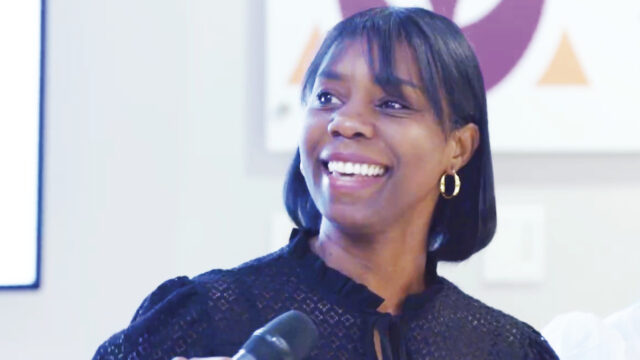
We use language for different purposes. Some words are for everyday conversations. Others are reserved for academic discussions. As students encounter more complex concepts and texts, understanding of academic vocabulary can be crucial to their learning. This article breakdowns academic vocabulary and provides strategies for effective vocabulary instruction.
Academic Vocabulary Definition
Academic vocabulary is defined as words that are traditionally used in academic discourse, both written and spoken. These vocabulary words are found in informational texts, textbooks, assessments, and other instructional materials across all content areas. When studying academic vocabulary, students learn about word origins as well as multiple meaning words.
Academic Vocabulary Examples
Below are examples of general academic vocabulary terms students may encounter when engaging in academic dialogue or reading informational text.
- Analysis: a detailed examination of something
- Evaluate: to determine value of
- Evidence: an outward sign
- Infer: to come to a conclusion
- Summarize: to express in a concise form
Building academic vocabulary knowledge helps students comprehend text, participate in academic discussions, and write research papers.
Academic Vocabulary vs. Content Vocabulary
Vocabulary words are often divided into three tiers based on their levels of complexity: tier 1, tier 2, and tier 3. The table below details the three tiers of vocabulary.
Tier 1 Vocabulary |
Tier 2 Vocabulary |
Tier 3 Vocabulary |
Basic words that frequently appear in everyday conversations. Examples: sunlight, happy, run |
Words that appear in academic discourse and text across subject areas and topics. Examples: determine, infer, predict |
Low-frequency, content-specific words. Examples: parabola (math), nucleus (science), onomatopoeia (language arts) |
Academic vocabulary falls under tier 2 vocabulary. These words commonly appear across multiple domains in academic texts and assessments and are often abstract. Academic vocabulary is essential for building comprehension and critical thinking skills.
Content vocabulary, on the other hand, is categorized as tier 3 vocabulary, which refers to words and phrases found in a specific subject area or field of study. These words are unique to the content being taught and students are unlikely to see these words outside of the subject in which they encountered it. For example, when learning math concepts, students will learn mathematical terms like "parabola." Building content vocabulary is critical in understanding the subject matter at hand.
Importance of Teaching Academic Vocabulary to ELLs
Teaching academic vocabulary is particularly beneficial to ELLs, as it equips students with the skills to achieve English language proficiency and academic success. Building academic vocabulary helps ELL students construct meaning and understand language when reading complex text or engaging in class discussions. Additionally, academic vocabulary knowledge prepares students to take on grade-level content and succeed in school and beyond. English language development programs, like English 3D, provide ELL students with consistent instructional routines for academic vocabulary.
Strategies for Teaching Academic Vocabulary
Because academic language is not typically used in daily conversation, it is imperative to provide explicit vocabulary instruction. Use the following strategies to effectively teach academic vocabulary and provide students with opportunities to practice using this language.
Provide Repeated Exposure of the Word
The more students are exposed to a new vocabulary word, the better they can internalize the word’s meaning. So be sure to use academic vocabulary words regularly in your classroom. One way to do so is by having a “signal word” of the day, as suggested by one study. Select an academic vocabulary word as the “signal word,” which will be used to signal a transition between activities. When the word is said, students repeat it chorally. Then, throughout the day, the teacher will check in with students and ask the word’s definition and how to use it in a sentence.
Use Graphic Organizers
Graphic organizers, like word maps, help students develop their understanding of academic vocabulary. In a word map, students define the vocabulary terms in their own words, identify synonyms and antonyms, and create a visual representation of the word. Download a printable word map graphic organizer to use with your students.

Keep Academic Vocabulary Journals
Have students record academic vocabulary in a journal. In the journal, students can write the word, definition, and an example of the word being used in a sentence. They can also draw a visual representation of the word. This journal can serve as students’ own dictionary of academic vocabulary terms.
Engage Students in Academic Discourse
Once academic vocabulary words have been introduced, give students the opportunity to practice the new terms in academic discourse. Use scaffolds, like academic response frames, to provide students with a supportive framework to structure their verbal response during a class discussion. Response frames are particularly helpful for multilingual students; however, all students can benefit from them, as they guide students in using academic vocabulary.

When students build a rich academic vocabulary, they have the tools to take on more complex content and achieve academic success.
…
Provide multilingual learners explicit academic language routines to build language confidence with English 3D.
Tune into a webinar from the author of English 3D, Kate Kinsella, on how to build a productive academic vocabulary toolkit.
Be the first to read the latest from Shaped.
Download our free guide to using response frames with multilingual learners.
Related Reading

Ms. Madge Alexandre, Miami-Dade reading teacher and Read 180 user















